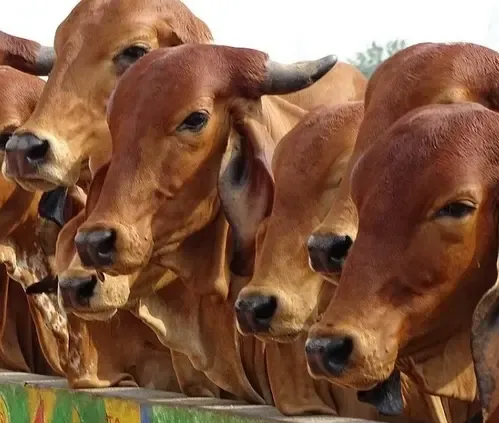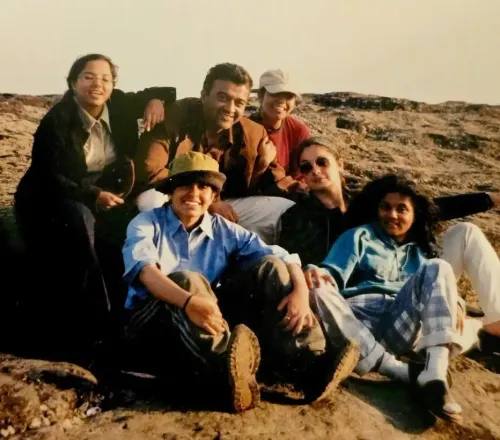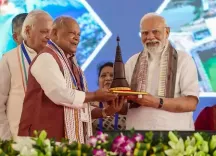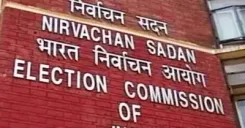Is Rajasthan's Dairy Sector Ready for a Historic Change with the First Sex Sorted Semen Lab?

Synopsis
Key Takeaways
- Bassi becomes the first location for a sex sorted semen lab in Rajasthan.
- Increased likelihood of female calf births to over 90%.
- Production of over 2.5 million doses of semen annually.
- 75% lower costs compared to imported semen.
- Enhanced rural economy through improved livestock.
Jaipur, Aug 10 (NationPress) Bassi, a quaint town located in the Jaipur district of Rajasthan, is on the brink of making an important advancement. Starting August 11, it will unveil Rajasthan’s inaugural sex sorted semen lab, a facility poised to revolutionize animal husbandry practices in the state.
"Sex sorted semen" is an innovative technology that enhances the likelihood of birthing female calves by over 90%, according to officials, marking a significant breakthrough for the dairy sector.
This is crucial, as these female calves mature into milk-producing cows or buffalo, consequently increasing farmers’ earnings. Additionally, it addresses the challenge of stray male animals, which is becoming a pressing issue in rural communities.
The application of this technology occurs through artificial insemination (AI) and will be available at veterinary hospitals and semen stations. For years, Rajasthan’s Frozen Semen Bank in Bassi, which has been operational since 1977, has been providing traditional semen for livestock breeding. Now, with the introduction of two state-of-the-art machines imported from NDDB, the lab is expected to produce over 2.5 million doses of sex sorted semen annually.
Officials conveyed to IANS that this new initiative will be a transformative factor for the dairy industry. The cost of these doses will be 75% lower than those imported, allowing farmers to enhance their herds without straining their finances. Moreover, Rajasthan could even export these doses to other states. The facility will generate sex sorted semen from both pure Indian and foreign-breed bulls, including Murrah buffalo, Holstein Friesian (HF), Crossbreed HF (CBHF), Gir, Sahiwal, Tharparkar, and Rathi.
This initiative is set to invigorate the rural economy, as animal husbandry serves as a vital component of Rajasthan’s economy, contributing 10% to the state’s GDP and forming a significant part of the 22% share from agriculture and livestock combined. Rajasthan currently ranks second in India for milk production, but with the establishment of this lab, the state aspires to claim the top position, officials reported to IANS.
The benefits extend beyond just milk production. With improved breeds and heightened productivity, rural incomes are expected to rise, local economies will strengthen, and farmers will gain renewed confidence in their futures. With the launch of this lab, farmers will have greater access to cutting-edge breeding technologies. More milk, increased income, and healthier breeds – that’s the promise, officials stated.
Cabinet Minister for Animal Husbandry, Joraram Kumawat, termed this a "milestone for dairy farmers in Rajasthan."
He added, "This lab will revolutionize dairy farming, equipping farmers with the tools they need to grow and prosper."
The establishment of this lab is a collaborative effort between the National Dairy Development Board (NDDB) and the Rajasthan Co-operative Dairy Federation (RCDF), supported by the vision of Prime Minister Narendra Modi and Chief Minister Bhajanlal Sharma.
Currently, Bassi’s facility produces conventional semen from 123 bulls, while Jodhpur’s semen bank generates approximately 1.2 million conventional doses each year.









